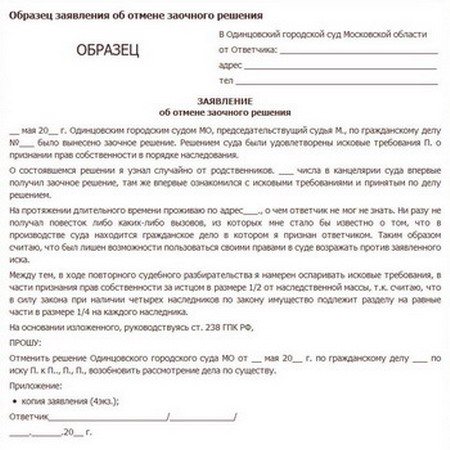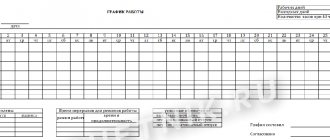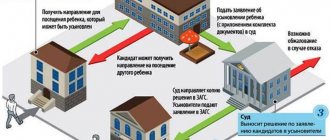What is a default judgment on divorce?
I will not include legal terms and will explain in a language accessible to everyone what a default judgment on divorce is. If the defendant, that is, not the person who applied for divorce to the court, but the second spouse, did not appear at the court hearing, the court has the right to make a decision in absentia, but on the condition:
if the court establishes that the defendant has been notified of the place and time of the consideration of the civil case for the dissolution of his marriage.
In other words, if the defendant received a subpoena notifying him that a divorce case would be heard on a certain date, or refused to receive a letter of subpoena, he is considered to have received proper notice.
Already at the first court hearing where the divorce case will be heard, a default judgment may be made to dissolve your marriage. Although “people” say that it is necessary for the defendant not to appear twice.
How to find a court decision on divorce by last name
If your husband filed a lawsuit for divorce, you should have received a copy of the statement of claim and a summons indicating the date of the court hearing by mail. Most likely, your husband’s application was left without consideration (this happens with some procedural violations, for example, failure to pay a court fee). The second, less likely option is that for some mysterious reason the summons was not received and the case was considered without you.
To find it in the search. How can I go to court? written or oral? or by phone? Well, they can meet you. There is such a magazine as “Alphabetical Display of Ship's Certificates”, using it you can find the number and number of the case very quickly.
When can you get a divorce in absentia?
Absentia proceedings begin at the initiative of the court, due to the absence of the defendant at the hearing, who:
- was notified in the correct form of the date, time and place of the hearing;
- did not report valid reasons for absence;
- did not submit a request to the judge to consider the claim in his absence.
The spouse has the right not to appear at the meeting on the issue of divorce for certain reasons. For example:
- lack of desire to delay the divorce procedure;
- hostile relationship with the plaintiff, which makes him not want to see him again;
- being on the territory of another subject or outside of Russia;
- defendant's illness;
- strong psychological experiences due to the spouse’s divorce proceedings, etc.
Unfortunately, some of the listed grounds will not be valid for the court (for example, hostile relations between the parties). If the defendant fails to appear at the hearing three times in a row, the court has the right to make a decision in absentia in his absence.
In addition, divorce in court is possible without the personal presence of the plaintiff. But in this case, he must notify the court of the possibility of holding a meeting without his participation. If the applicant has not notified the court of his absence, and the defendant, who came to the trial, does not insist on the proceedings, the claim may be left by the court without consideration.
To relieve themselves of the obligation of personal presence, spouses can send representatives by issuing notarized powers of attorney for them and giving them the appropriate amount of authority.
How to find out about a divorce case in court by last name
If the spouse lives separately and in another city, then the claim is filed at her place. It is also worth contacting your spouse's lawyer. If there is information that a person has engaged a lawyer, then it is better to contact him and clarify the filing of a claim. He has no right to tell any information other than this.
Go to court Most often, divorce proceedings take place in court. The second spouse may not have known about such an event if a notice was sent to his last registered address, but he no longer lived there. When the defendant does not appear at the meeting, the marriage can be dissolved unilaterally. How to find out if a marriage was dissolved through court? To do this, you need to send a request to the court at your place of registration. Sometimes the initiator of a divorce has the right to file a claim in court at his place of registration, so send a request to this authority too. You receive information that the court has issued a divorce decree.
Is it possible to get a divorce in absentia, without the personal presence of both spouses?
There are many reasons why spouses seek to dissolve a marriage without appearing in person at the agency examining the applications:
- a banal reluctance to see a husband or wife;
- inability to attend court or the registry office due to illness, change of place of residence or other valid circumstances;
- disagreement with the dissolution of marriage, a desire to delay the receipt of a divorce certificate.
The law allows divorce to be filed in absentia. However, this can be done if certain conditions are met and a number of requirements are met.
In what cases is a divorce in absentia acceptable?
Consideration of divorce disputes by civil registry authorities occurs without the presence of one of the participants under the following circumstances:
- mutual consent of the parties to divorce;
- absence of disputes regarding the division of joint property;
- there are no children or they have reached the age of majority;
- submission by the husband/wife of a notarized application for divorce without personal presence.
Without filing a notarial application and without notifying the defendant about the termination of the marriage, it is possible only in case of imprisonment for a criminal offense, recognition as missing or incompetent.
In the future, such a divorce may be refuted by the spouse who has restored legal capacity, or whose place of residence has been revealed.
In the absence of mutual consent to divorce, in the event of additional disputes about children or common property, the divorce is registered in court. You need to know the following about a divorce in absentia:
- You can delegate the authority to represent you in court to a lawyer (documented);
- You can apply to postpone the trial for compelling reasons;
- If a person is repeatedly absent without explaining the reasons, the decision is made in absentia.
Methods for filing for divorce without the presence of a second spouse
The interested spouse has the opportunity to send a petition to terminate the marriage to the registry office in the following ways:
- personally to the authority;
- on the State Services website;
- postal service.
Filing claims in court without the presence of the defendant is available in the following ways:
- Russian Post (function “inventory of attachment”);
- personally;
- through a representative (by notarized power of attorney).
A spouse who does not want to be present during the divorce procedure must contact a notary and prepare:
- written consent to dissolve the marriage;
- a trust letter for the second spouse, allowing you to file an application unilaterally.
The spouse who has given consent for an absentee divorce pays the state fee in the general manner, but the registry office is not obliged to send him a divorce certificate.
Take the survey and a lawyer will share a free divorce action plan in your case
Absentee divorce at the registry office
Regardless of the nature of such reasons, a divorce in absentia can be carried out, but subject to a number of conditions.
When is it possible to carry out a divorce in absentia at the registry office:
- With the mutual consent of both spouses, when neither party is against divorce;
- In the absence of property disputes and claims against each other;
- In the absence of joint minor children.
If at least one of the criteria is not met, then it is impossible to obtain an absentee divorce from the registry office.
As a rule, divorce of spouses who do not have children and claims against each other occurs as follows: both parties submit an application to the institution, and then receive a certificate of divorce. This is, so to speak, a well-oiled mechanism.
But there are always exceptions to the rules. And here it is also possible to file a divorce without the presence of both spouses or without the presence of one spouse.
Obtaining a divorce in absentia is possible if one of the absent spouses fills out an application for divorce and must have it notarized. The second subject will submit an application to the registry office with his own hand and in personal presence. In this scenario, the divorce will be carried out according to the usual scheme.
In exceptional cases, it is allowed that the other party to the marriage relationship does not provide consent to divorce. True, for this it is necessary to meet certain conditions:
- The second party is deprived of legal capacity;
- The spouse has been convicted of a specific offense and the term of imprisonment exceeds three years;
- The spouse has been declared dead or missing by the court.
But regardless of what circumstance gives the right to receive a decision in absentia without notarization of the application of the second subject of the marriage, it is always necessary to have documents confirming such a right. In most cases, this is a court decision.
True, there are some nuances here: if the divorce was carried out without an application from the spouse, but only on the basis of a court decision, then it can be challenged in court. Such an opportunity will appear only if circumstances change: the person recognized as dead is found; a person found convicted will be acquitted, etc.
These two methods of divorce in absentia at the registry office are possible.
I can't get a copy of the divorce decree
Of the files (orders) subject to destruction, personal documents remain for storage, which are placed in a separate folder containing an internal inventory of documents. The inventory includes: surname, name, patronymic of the owner of the document, name of the document and number of the case (proceedings) from which it was withdrawn, the year of consideration of the case, number and date of the act of destruction of the case. Unclaimed personal documents are stored in the archive for 50 years, after which they are destroyed. ".
About 10 years ago there was a divorce trial. I found an old draft from which I can determine the name of the judge..\I know the approximate period. Then, during the divorce, they gave me a copy of the decision, which was taken by the Registration Chamber. I carried another copy to the registry office. (all this within one to two months). I didn’t formalize the termination itself, the registry office says they only keep files for 5 years. That’s why there’s nothing there. T. now a question has arisen - and I can’t get this decision in court, they can’t find it in the court archive, they found on me in some register (without dates and details) at the expected time, a record of a similar case, but there the woman with my surname, other initials - mine is N.A., and there is N.L. I wrote a statement about the search, zero emotions, they can’t even bring up another case with other initials, like they can’t find it. What should I do? A lot has changed in my life in 10 years, and I won’t be able to bring my ex-husband for another divorce. He will lay claim to the property. Please advise!! Thank you in advance
We recommend reading: How to calculate preferential service
Will it be possible to obtain a divorce in absentia through the registry office?
It is not always possible to file a divorce at the registry office. This is permitted when both spouses have reached an amicable agreement and they do not have children together. In addition, both husband and wife must be present when the divorce proceedings are registered, and they must submit one joint application in advance. But here there are some nuances that allow you to file an absentee divorce.
at the registry office.
This is possible if one of the spouses wrote an application for divorce (in accordance with Form No. 8) and had it certified by a notary. After which he transfers this statement to the other spouse. After receiving the document, the latter must bring it to the registry office along with his application. To do this, you need the mutual consent of the spouses.
The exception is when the spouse:
- missing or declared dead,
- incapacitated
- is serving a prison sentence exceeding 3 years, which he received on the basis of criminal law.
If your case fits one of these circumstances, you need to submit the appropriate document that proves these facts. For example, a court decision that has entered into force, a sentence. The application in this case is submitted in accordance with the established form No. 9.
Note! In the situations described above, divorce in absentia
possible without any problems.
But if the circumstances change (for example, a person was declared missing and then found) that served as the reason for the divorce, the decision to dissolve the marriage can be canceled .
There are no longer any ways to file a divorce in the registry office without the participation of the second spouse. We'll have to go through the courts.
Absentee divorce in court
In most cases, it is in the registry office that the presence of both spouses is required for a divorce, but if the procedure takes place in court, such circumstances occur much more often. One or even two spouses may be exempt from participation in the trial. But to take advantage of this opportunity, you also need to comply with some rules.
First, you need to remember that you should not immediately run to court to get a divorce. You need to understand which institution should handle your case. So, for example, if complete agreement is reached between the spouses, and they have no children, and there are no property disputes, there is no need to go to court. Therefore, when the issue of divorce can be resolved in the registry office, there is no point in going to court for a decision.
Divorce in absentia without the applicant spouse
Breaking off a family relationship is always very difficult. The matter is complicated by the need to collect a package of documents in order to defend the decision. And then there is the excitement associated with the upcoming meeting in the courtroom. Divorcing people are also worried about the future court decision.
This means that even the applicant has the right to delegate the conduct of the case in court to another person who will file an application, be present in the courtroom and even appeal the court decision, if necessary.
Moreover, there are cases when the consideration of a case occurred much faster and more efficiently if one of the spouses entrusted its management to another person. Emotions are not always on the side of the spouses, and in most cases they also harm them.
To transfer his rights, the plaintiff spouse must issue a power of attorney for divorce . It will be better if you can inform the judge involved in the case in advance. It is quite possible that the other spouse will not appear in the courtroom, but will send a proxy in his place.
Divorce in absentia without a respondent spouse
Very often, an absentee divorce is filed without the presence of the respondent spouse. The reasons for refusal to appear in the courtroom may be different:
- disease,
- ignorance about the beginning of the procedure,
- the spouse is located in another city at a great distance from the plaintiff.
Regardless of the reasons, the divorce will be filed in any case. It is for those who like to delay time that the possibility of divorce in absentia is provided .
If notices indicating the time and place of the procedure are regularly sent to the defendant, the court has the right to dissolve the marriage without the presence of the defendant spouse . According to existing legislation, only 3 failures to appear are enough.
But there is an exception here too. Sometimes the defendant does not have enough time to notify the court that he has a valid reason for not appearing in the courtroom. Therefore, if the judge made a default decision, he can ask for its cancellation. The defendant is given only a week from the date of receipt of the court decision to do this. When the court sides with the defendant and overturns the previous decision, the case is tried again . But in this case, the respondent spouse must be present.
Example
A girl living in Moscow came to court with a request to dissolve her marriage and collect alimony, due to the fact that she and the defendant have two minor children. It turned out that the defendant did not care at all what was happening at the moment in his family life, so he did not consider it necessary to come to the courtroom. The court found that the spouse actually resides at the address noted in the claim. After no response to the summons, the court decided to divorce and collect monthly payments for two children.
How to find out a court decision in the Russian Federation by last name in 2019
At the moment, you cannot drive the vehicle for the period specified by the court. You can appeal the court order if the deadline is not missed - 7 days from the date of service. If you missed the deadline, submit an application for reinstatement of the missed deadline, indicating the important reasons for the missed deadline - serious illness, for example. The reason “I didn’t know” is not valid for the court.
Hello. Yes, the trial can take place without the presence of the defendant. If the court decision was in absentia, then, in accordance with Article 237 of the Code of Civil Procedure of the Russian Federation, you have the right to appeal it in several ways: through the cancellation of the decision by the court that issued it, or on appeal. When filing an application to cancel a default judgment in accordance with Article 238 of the Code of Civil Procedure of the Russian Federation, you must provide evidence indicating that your failure to appear at the court hearing is valid (you did not receive notifications, lived in another city, etc.)
When does a default judgment come into force?

A divorce decree in absentia takes a little longer to enter into force than a regular decree. The law establishes that a defendant can have a default judgment set aside by appealing to the court that issued it within 7 days after receiving it by mail or otherwise.
If the defendant does not exercise this right and does not cancel the divorce decree in absentia within these 7 days, then the next deadline begins - the date for the decision to enter into legal force. The Civil Procedure Code of the Russian Federation establishes this period “within a month.”
So, we consider when a divorce decree in absentia will enter into legal force after it is issued:
at least 5-7 days for the default judgment to be received by the defendant, provided that he lives in your city
+
7 days to cancel a default divorce decree (reported from the date the defendant received a letter from the court with the decision, court employees will find out this date from the notice that is returned to the court)
+
The period for the decision to enter into legal force is 1 month.
Since a default divorce decree takes longer than usual to become final, the judge asks the first party, the plaintiff, for his consent to the default judgment. I hope I explained it clearly. So think about whether to postpone the consideration of the case, which is at least one to two weeks, or agree to a divorce without the participation of the defendant.
Time limits for a court decision to enter into legal force
Art. 321 of the Civil Procedure Code establishes that after the final verdict is rendered by the judge, the parties have a month to appeal it. If after this period the appeal has not been filed, the decision enters into legal force. From this date the marriage is considered dissolved.
Within 3 days from the date of the decision, the decision is transferred to the registry office for the preparation of a divorce certificate. At this stage, each spouse who wishes to obtain a certificate of divorce must pay 350 rubles of state duty for its production.
Isn’t it time to “kill” absentee proceedings under the Civil Procedure Code?
Absentee proceedings are considered a means of speeding up the consideration of a case. However, is this really so?
Do the changes introduced by Federal Law No. 451-FZ dated November 28, 2018 (came into force on October 1, 2019, the so-called “procedural revolution” contribute to such acceleration); the original draft of the law is contained in the Resolution of the Plenum of the Supreme Court of the Russian Federation dated October 3, 2017 No. thirty)?
It seems that there are several points that will make it possible to painlessly exclude the rules on absentee proceedings from the Code of Civil Procedure.
1. The rules on proceedings in absentia are optional (optional): if the defendant fails to appear, the court may make a decision not in absentia.
The rules on absentee proceedings were introduced into the Civil Procedure Code of the RSFSR by Federal Law of November 30, 1995 No. 189-FZ and initially looked like a kind of trial, a test, since they allowed, in the event of the defendant’s failure to appear, both an absentee decision, which could be overturned by the court of first instance, and an ordinary decision ( Part 3 of Article 157), which could only be appealed to the court of second instance.
For some reason, nothing changed with the adoption of the Code of Civil Procedure of 2002: a decision in absentia is only an alternative to a regular decision, which can also be made in the absence of the defendant (Part 4 of Article 167).
For this reason, the chapter on absentee proceedings looks alien, not built into the code system. For those who rarely encounter courts of general jurisdiction, the relationship between a default judgment and an ordinary judgment in the absence of the defendant is not always immediately clear.
At the same time, the Charter of Civil Proceedings of 1864 provided that if the defendant failed to appear and did not ask to consider the case in his absence, the court could only make a decision in absentia (Article 145, 718-719) [1].
The initiative in choosing a procedure under the Civil Procedure Code belongs to the court; only consent is required from the plaintiff.
For both types of decisions, the conditions are the same, including the need for proper notification of the defendant.
In practice, courts more often make decisions in absentia precisely in cases where there are doubts that the defendant knows about the process. The developers of the Charter of Civil Procedure of 1864 (“reasoning” to Article 718) also proceeded from the “uncertainty of the court about the validity of delivery of the summons to the defendant.”
2. It is difficult to determine when a default judgment comes into force.
The date when the default judgment comes into force is tied to the moment when its copy is served on the defendant.
In practice, this leads to the fact that the “time of delivery”, if the defendant did not actually receive the decision, is understood differently by the courts.
For example, in one of the regions, a stable practice has developed when the court assigned the delivery of a copy of the default decision to the defendant to the plaintiff if the postal decision was returned. [2]
In other regions, the courts waited for the return of the repeated mailing with a copy of the decision.
Thanks to this, the absentee decision entered into legal force almost a month later compared to a regular decision.
But that's not all. Current rules allow a default judgment to be set aside after a significant period of time has passed on the application of a defendant who has not received a copy of it, which has sometimes led to serious abuses.
Thus, in one of the cases, the absentee decision on debt collection in 2002 was canceled in 2010 (ruling of the Supreme Court of the Russian Federation dated March 29, 2011 No. 14-G11-9).
In another case in 2008, a default judgment on divorce in 1998 was canceled (after 10 years!). Since the plaintiff had died by that time, the proceedings were discontinued. It was possible to cancel the ruling only in the Supreme Court (ruling of the Supreme Court of the Russian Federation dated October 13, 2009 No. 22-B09-12).
The cancellation of a default judgment on divorce several years after it was made, after the death of the plaintiff, and the termination of proceedings in the case looks like a “scheme”, and, apparently, not without “extra-procedural influence” on the court. The goal here is obvious - to change the composition of the heirs.
It was possible to find an example (apparently not the only one) where a judge paid with his powers for just one fact of canceling a default judgment on divorce after the death of the plaintiff (decision of the Supreme Court of the Russian Federation dated December 16, 2008 No. GKPI08-1969).
In such a situation, the Supreme Court was forced to give a contra legem interpretation.
In the Review of Judicial Practice of the Supreme Court of the Russian Federation No. 2 (2015), approved by the Presidium of the Supreme Court of the Russian Federation on June 26, 2015 (question 14), it is proposed to consider that in the absence of information about the delivery of a copy of the decision in absentia to the defendant, it enters into legal force upon the expiration of the total of the following deadlines : 1) a three-day period for sending a copy of the decision to the defendant, 2) a seven-day period for filing an application to cancel the decision and 3) a month for appealing the appeal.
At the same time, it is prohibited to restore the deadline for filing an application to cancel a decision in absentia if a copy of the decision was handed to the defendant after the expiration of the period for his appeal.
These explanations are not always supported by lower courts. So, in 2021, in one of the cases with my participation, the court was waiting for the return of the re-sentence with a copy of the default judgment.
In addition, there have been cases where the courts, knowing about these clarifications, directly refuse to be guided by them.
Thus, the regional court upheld the ruling, which restored the deadline for filing an application to cancel the default judgment. The default judgment was made in final form on 03/04/2016, the application for cancellation was submitted on 06/02/2016, that is, clearly later than 1 month and 10 days mentioned in the Review.
It is noteworthy that the court refers to the Review, but does not adhere to the interpretation given in it about the time frame for the entry into force of a default judgment (appeal ruling of the Novosibirsk Regional Court dated September 13, 2016 in case No. 33-9713/2016).
Ignoring these clarifications is also explained by the fact that it is impossible to appeal a ruling to cancel a decision in absentia: its appeal is not provided for by law, and it does not exclude further progress of the case (Part 1 of Article 331 of the Code of Civil Procedure). For the same reason, the ruling refusing to satisfy the application to cancel the default decision cannot be appealed.
Thus, the court that made a decision in absentia can cancel it without any consequences even if the conditions for cancellation listed in Art. 242 of the Code of Civil Procedure, for example, when the defendant does not report valid reasons for his absence.
An attempt to eliminate uncertainty regarding the moment at which a decision in absentia enters into legal force was made in the bill proposed by Resolution of the Plenum of the Supreme Court of the Russian Federation dated October 3, 2017 No. 30 (the so-called “procedural revolution”). In it, the rules for serving a copy of the default judgment on the defendant were linked to the new notification rules, similar to the rules of the APC. They should have been contained in Art. 167.1 of the Code of Civil Procedure, which was not included in the final text of Law No. 451-FZ.
In addition to the mentioned review, paragraph 68 of the Resolution of the Plenum of the Armed Forces of the Russian Federation of June 23, 2015 No. 25 can come to the rescue, which makes it possible to apply the rules of Part 1 of Art. 165.1 Civil Code of the Russian Federation. It seems that with this approach, the moment of delivery of a copy of the decision in absentia to the defendant coincides with the day of expiration of the storage period for the postal item (the day of return dispatch); according to another opinion, this is the day when the letter was returned to the court.
3. Issuance of a default judgment does not reduce the overall burden on the courts.
According to judicial statistics [3], in 2021, 653,653 decisions were made in absentia, that is, almost 20% of all decisions to satisfy the claim, not counting court orders and decisions made in summary proceedings (I assume that in the event of a denial of the claim, the absentee no decisions were made), but 35,470 were overturned by the court of first instance, that is, 5.4%.
As you can see, absentee proceedings are in great demand among courts (remember that it is the court that initiates absentee proceedings).
There are no separate statistics on the number of decisions made in absentia in the absence of the defendant (Part 4 of Article 167 of the Code of Civil Procedure).
The possibility of overturning a decision by the court itself that made it clearly finds support in the judicial community.
Thus, proposed in the bill introduced by the Resolution of the Plenum of the Supreme Court of the Russian Federation dated October 3, 2017 No. 30, a new article 294.1 CAS “Cancellation of a court decision in an administrative case considered in summary (written) proceedings by the court that made the decision” was included in the law unchanged form.
Supporters of such decisions talk about reducing the burden on the court. As an argument, they usually cite a small percentage of cancellations of absentee decisions.
However, it is easy to notice that the rules on absentee proceedings in cases where the defendant does not agree with the decision and intends to appeal it, including in an appeal, lead to at least one more court hearing - a meeting at which the application to cancel the absentee decision is considered .
Changes to the chapter on proceedings in absentia, proposed by Resolution of the Plenum of the Supreme Court of the Russian Federation dated October 3, 2017 No. 30 and nevertheless included in the final text of Federal Law No. 451-FZ dated November 28, 2018, certainly do not help reduce the workload on the court: from October 1, 2019 the defendant can file an appeal only after attempting to cancel the default judgment in the court of first instance, even if, for example, he does not see the grounds for such a cancellation provided for in Art. 242 of the Code of Civil Procedure, but sees only grounds for an appeal (for example, if the court only incorrectly applied the rules of substantive law, and the defendant does not have evidence of valid reasons for failure to appear).
The Charter of Civil Procedure of 1864 did not know such a rule: according to Art. 734 of the Charter, the defendant’s right to appeal was not conditioned by the need for a “revocation” (an application to cancel a default judgment in modern terminology).
The procedure for proceedings in absentia and the new rules for appealing a decision in absentia do not reduce the burden on the appellate court: the defendant who files an application to cancel the decision in absentia, in case of refusal, will most likely appeal, as well as the plaintiff in the event of cancellation of the decision in absentia by the court first instance and subsequently making a decision to reject the claim (however, to study this issue, data on the appeal is needed, which is not reflected in the statistics).
Thus, maintaining the rules on absentee judgment does not fit into the principles of reforming the civil process proposed by the Resolution of the Plenum of the Supreme Court dated October 3, 2017 No. 30 (the main one is procedural economy).
The APC, which is considered a more modern code, does not provide for the possibility of overturning a decision by the court of first instance itself (except for writ proceedings, which appeared there relatively recently).
It seems that the exclusion of the chapter on absentee proceedings from the Code of Civil Procedure will give more advantages than disadvantages. The latter includes fewer opportunities for a defendant who was unaware of the process to reverse an illegal decision, for example, on a non-existent debt. However, there are obviously fewer such cases than abuses of this institution by defendants.
Otherwise, it is necessary to significantly revise the rules on proceedings in absentia, bringing them at least closer to the Charter of Civil Proceedings of 1864: first of all, to make the procedure for proceedings in absentia the only possible one in the event of the failure of the defendant to appear, who did not send a response to the claim and did not ask to consider the case in its absence; set deadlines for canceling a default judgment.
______
[1] Judicial statutes of November 20, 1864, with a statement of the reasoning on which they are based. Part one // https://civil.consultant.ru/reprint/books/115/
[2] N.V. Kozlova. Problems of absentee proceedings in the civil process of the Russian Federation//Official website of the Supreme Court of the Republic of Bashkortostan https://vs.bkr.sudrf.ru/modules.php?name=press_dep&op=3&did=1, publication date 10.22.2008, access date 13.01. 2020.
[3] https://www.cdep.ru/index.php?id=79&item=4891
How to cancel a default divorce decree?
To cancel a default judgment on divorce, within seven days from the date on which you received it against receipt, you should contact the judge who accepted it with an application to cancel the default judgment. Here's a sample to help you:

But, I warn you right away, a divorce decree in absentia will be canceled if you prove to the court that you did not appear at the court hearing for a completely valid reason and that you have evidence in the case that could influence the court’s decision.
Possibility of appealing the decision
If a citizen considered missing or dead makes himself known, the court decision to assign missing person status is canceled. Divorce in absentia is also subject to cancellation, but only if the other spouse did not have time to enter into a new marital relationship. Detailed conditions are enshrined in Article 26 of the RF IC.
A divorce is canceled if both spouses apply for it. Sole appeal is not a basis for restoring marital relations. Applications from husband and wife are accepted at the registry office.
If a divorce decision is made in absentia by the court, it is more difficult to appeal the decision. And you need to act quickly: the appeal period is 7 days from the date of receipt of a copy of the decision, as stated in Article 327 of the Code of Civil Procedure of the Russian Federation. During this time, you must have time to file a complaint against the court decision.
An appeal is considered if:
- Procedural requirements were violated. For example, the spouse did not receive notice of the meeting and therefore could not attend.
- The citizen's absence is due to valid reasons; evidence of the latter is provided.
But even if the appeal period is missed, you can appeal a decision that has already entered into force. But only if the defendant is not provided with a copy of the resolution or is not provided on time, and also if information about the divorce proceedings was not received at all.
In these cases, the appeal period is extended, which makes it possible to file a motion to disagree with the court's ruling. But the court can satisfy the complaint and cancel it only if there are compelling circumstances.
During the appeal period
Within 3 days from the date of divorce, each of the participants is sent a copy of the court verdict. Spouses can receive their copy of the document in the judge's office or remotely by mail. Then, within 1 week, an application is prepared to cancel the decision in absentia if the participant does not agree with the verdict.
Question from judicial practice: I received a notification that the court has issued a divorce decree. I did not receive any notices that my wife decided to end the marriage, or any summons to appear in court. Is it possible to appeal a divorce?
Lawyer's answer: The spouse, having decided to end the marriage, is obliged to send her husband a notice of the upcoming divorce with a copy of the statement of claim. If such notice was not received, then procedural requirements were violated and the spouse has the right to appeal the decision.
The second condition is the presence of compelling reasons for absence during the meeting. A court clerk is authorized to issue subpoenas to all participants. Ignoring 3 official calls leads to an absentee decision by the court. If a citizen was absent from his place of residence for good reasons (business trip outside the garrison, illness with inpatient treatment) and the summons was not received, then the judge is obliged to cancel the previously made decision and set a new date for resolving the dispute, when all participants can be present.
Upon expiration of the period for appeal
According to the general rule, it will no longer be possible to cancel a decision made after a month. But there are a number of cases when the defendant has the right to annul a court decision on appeal. These include:
- lack of information about the divorce process;
- failure to receive an accepted verdict;
- violation of the deadlines for sending a court decision before it enters into legal force.
The interested participant must collect a complete package of evidence to restore the appeal period, prepare a statement of claim to the court where the main decision was made. If the judge grants the request and restores the deadline for filing an appeal, then a second appeal will be made, but to a higher authority.
How to find a court decision on divorce by last name
Share How to find out a court decision by last name and case number online via the Internet? But there are times when the court’s verdict needs to be known to a person who is not a participant in the process. In the modern world, anyone can find out the result of almost any court hearing. We’ll talk about how to find out the court’s decision in the article. Dear readers! Our articles talk about typical ways to resolve legal issues, but each case is unique. If you want to find out how to solve your particular problem, please contact the online consultant form on the right or call the free consultation numbers:
We recommend reading: Retail trade based on
In what cases is a case considered without participants in the process? According to existing standards, two months are allotted for the consideration of a case in court. There are situations when the period is extended by 30 days, but in practice this rarely happens. Most often, the hearing is postponed due to the failure of one of the parties to the case to appear.







